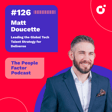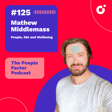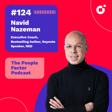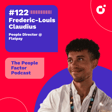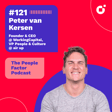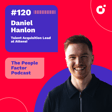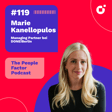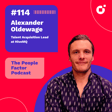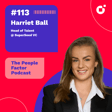
#109 - Blaise Daldin | Neurodiversity
Blaise is a Global Tech Recruiter and DEI Sourcing Specialist based in London. With eight years of experience in recruitment, Blaise has honed expertise in tech hiring and promoting Diversity, Equity, and Inclusion (DEI). Blaise has collaborated with exceptional talent and prominent global brands such as Amazon, The Economist, and Gorillas.
Driven by a passion for creating inclusive workplaces, Blaise has successfully enhanced hiring diversity, eliminated agency reliance, and spearheaded DEI workshops and internal initiatives to foster cultural transformation. Since being diagnosed with ADHD last year, Blaise has been dedicated to advocating for neurodivergent talent and cultivating environments where everyone has the opportunity to thrive.
Shownotes
00:00 - Intro & Context
05:30 - Defining Neurodiversity
15:45 - Inclusive Hiring Practices
25:20 - Leveraging Strengths in Neurodiversity
Guest Linkedin: https://www.linkedin.com/in/blaisedaldin/
Thomas Linkedin: https://www.linkedin.com/in/thomas-kohler-pplwise/
Thomas e-mail: thomas@pplwise.com
pplwise: https://pplwise.com/






